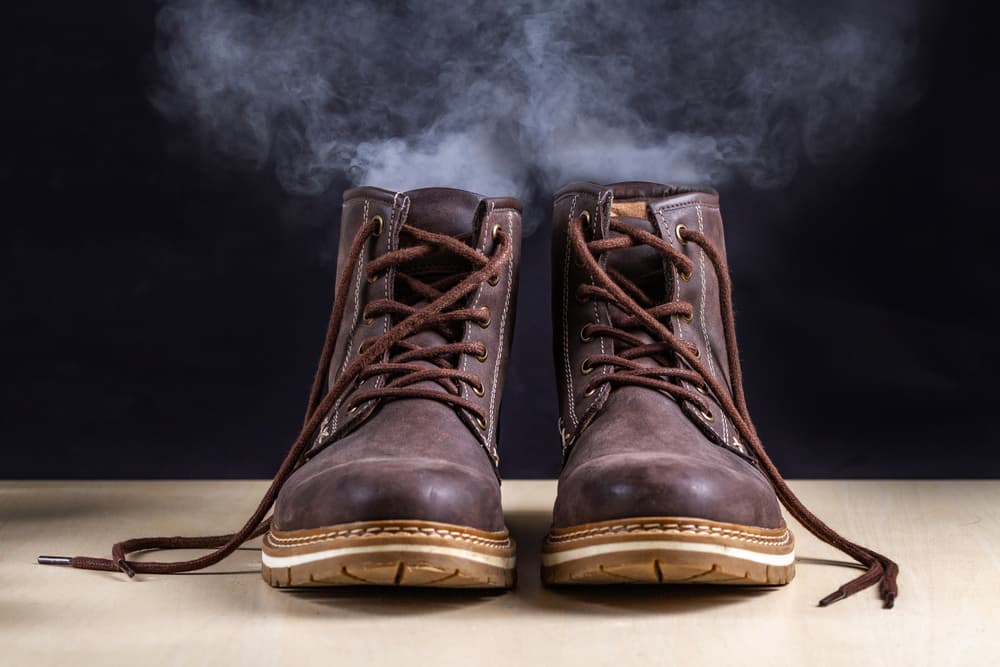How to Treat Dry & Smelly Feet with Proper Foot Care

As you read about proper foot care, you’ll learn the following:
- What causes foot odor and how to fight it
- Why people with diabetes need to be especially mindful of foot health
Your feet take you everywhere, which means they get the brunt of your busy life. As the premier podiatrist office in St. Louis, MO, Horizon Foot & Ankle Institute has a few foot care tips to keep you up and running.
How to Treat Dry Feet
Dry, cracked feet are common but may be embarrassing and, in the worst cases, painful. The good news is, you can reverse and even prevent this condition with a bit of TLC.
First, make sure to apply moisturizer every day, especially if you’ve been swimming, as chlorine is drying. Our staff can recommend specialized creams to combat dryness if necessary.
Next, don’t over-soak. While it’s important to wash your feet, you shouldn’t soak them frequently. It’s counterintuitive, but submerging your feet for long periods can actually lead to dryness.
How to Get Rid of Odor
Smelly feet aren’t a joke — they can be embarrassing and inconvenient for their owners. If athlete’s foot or other foot fungus is the cause, you can find treatment at Horizon Foot & Ankle Institute’s St. Louis, MO, location. If your feet seem otherwise healthy, but you’re still dealing with the smell, you can try wearing breathable shoes.
Odor is often the result of sweat, and wearing breathable shoes ensures your feet don’t overheat. Switching to breathable shoes doesn’t just help with foot odor; it can also make you more comfortable.
How to Stop Foot Sweat
Sweaty feet can be uncomfortable and lead to fungus if not properly treated. While everyone gets sweaty feet now, some people are more prone to it. While the root cause remains undiscovered, there are still steps you can take to mitigate moisture.
One highly effective way is wearing moisture-wicking socks. Moisture-wicking material draws sweat away from your skin to keep you feeling fresh and cool. While it won’t stop you from sweating, it can prevent discomfort, fungus growth, and odor.
How to Treat Calluses and Corns
Most people develop calluses or corns at some point, usually from wearing the wrong shoes or spending a lot of time on their feet. To prevent these at-times painful patches of skin, try to avoid shoes and socks that rub. If you’re currently dealing with corns and calluses, you can use foot treatments to make them go away.
For example, salicylic acid is used to treat acne, but it can also speed recovery from calluses and corns. Because this substance can be rough on the skin, you should always consult your podiatrist before using it on your feet.
How to Keep Your Feet Healthy If You Have Diabetes
Individuals with diabetes need to be especially vigilant about feet health since minor problems can quickly turn serious. The best preventative care is to visit your podiatrist every nine weeks. In between visits, you should keep an eye out for wounds.
If you have nerve damage, you may not feel a small cut or sore. These small wounds are dangerous, as they can become infected. As you clean your feet, make sure to give them a once-over and immediately tend to any injuries you find.
When it comes to preventing wounds, the best tactic is avoiding bare feet. Wear durable shoes when you go outside and slippers or thick socks while indoors.
Horizon Foot & Ankle Institute is proud to offer our services to the community of St. Louis, MO. We know how important mobility is to everyday life and are happy to work with anyone who wants to keep their feet healthy. If you’d like to learn more or make an appointment, give us a call at (314) 381-1800 or reach out to us online.
Featured Image: goffkein.pro/Shutterstock
